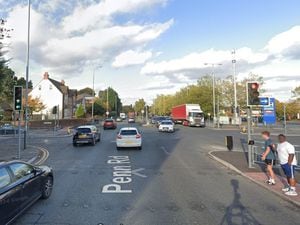The importance of free English language classes
Education blog: Cathie Lacey discusses the importance of offering free English language studies and the potential impact of charging on society.
Imagine the scene – a class of ESOL students are coming into class. They are studying the English language – ESOL means English for Speakers of Other Languages – and they are keen to get started writes Cathie Lacey.
Today is the last session before their exam and they want to go over a few points of grammar and check they know where to go. There are 18 of them in the class, and they are from all over the world.
Naseem is from Pakistan. He married his English born wife three years ago and has been working part-time in a garage since he arrived. He really wants to study motor vehicles, but his English isn't good enough yet.
If he passes this exam, his employer has promised him more work – and then he hopes to take that course. He could do with the extra money as he sends quite a bit back home to support his family.
He takes his seat next to Krysia. She is from Poland and has been in England nearly a year now. She has been working in a local packing factory on minimum wage when she can get the work – but there has been less and less these last few months.
Passing this course would mean she could sign up for a nursing course – she has a diploma from Poland, but needs a full course in England to begin work here.
These are just some of the people who are studying English - ESOL.
They want to play a greater part in the life of the country they live in. They want to learn English and work hard to pass their exams. Right now they can study for free – but come September they will all have to pay full costs for their courses. Only those who are on work seekers benefits will be able to have free classes.
These students have told their tutor they will not be able to afford the course costs – nearly £1000 a year – in September and so they will have to stop learning English. Society will lose a car mechanic and a nurse– and many other motivated and hard working ESOL students who want to contribute fully to society. Is that right?
At the University of Wolverhampton, there are specialist teacher education courses for those who want to work with ESOL students.
We offer a pre-service full time Post Graduate Certificate in Education (PGCE) to teach in colleges and adult education providers, as well as an in-service teaching qualification for those who already teach in the sector.
We even offer a top-up (an additional diploma) for those who want to know more about the ESOL teaching they do.
It is a difficult job – the classes are so varied – but it is very, very rewarding. ESOL teachers meet students from all over the world – some of whom have degrees and doctorates from their home country, others who were not able to attend school at all.
But all want to learn and what could be a better job than supporting eager, interested students?
Want to find out more – or be involved? Here's a web address just for that – Action for ESOL (http://actionforesol.org/) And the website for the university is, as ever www.wlv.ac.uk - search for PGCE ESOL.
Cathie Lacey is a Senior Lecturer PCE at the University of Wolverhampton.
Image: il Luca à pAris/Flickr





